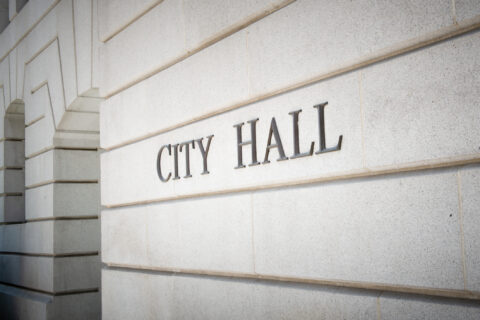The National League of Cities (NLC) is assisting six member cities to assess and reform their use of local fines and fees and develop equitable collections strategies as part of the new Cities Addressing Fines and Fees Equitably (CAFFE) technical assistance and grant initiative.
Cities chosen for the CAFFE cohort include:
- Aurora, Colorado;
- Baton Rouge, Louisiana;
- Durham, North Carolina
- Lansing, Michigan;
- Nashville, Tennessee; and
- Saint Paul, Minnesota.
Whether triggered by courts, unpaid bills for city services, or other administrative actions, municipal fines and fees can impose a crushing burden on low-income residents. Aggressive debt collection practices can further exacerbate the financial strain on low-income residents.
Cities frequently miss key opportunities in their current approaches to fines and fees – residents who are unable to pay fines and fees often struggle with other debt and financial burdens and may not be aware of financial empowerment services available to them in their communities.
NLC’s CAFFE initiative will assist cities to implement innovative financial empowerment approaches to help residents who are in debt to cities as a result of municipal fines and fees. NLC will also draw upon lessons from its LIFT-UP program which successfully assisted cities in reducing residents’ water utility debt.
“Identifying and mitigating the harmful effects of fines and fees imposed by the city is a key piece of my overall vision of a more inclusive and equitable Durham,” said Durham Mayor Steve Schewel. “I have seen the devastating consequences that court-imposed fines and fees can have for our residents. I’m excited to learn alongside the other five cities in NLC’s CAFFE project and examine how residents are affected by areas such as housing fees, code violations, parking tickets, and court fines and fees, as well as how we can make these practices more equitable.”
With support from JPMorgan Chase and Co., NLC is providing the six cities with grants and technical assistance to:
- Assess their fines and fees structures within at least one of their municipal collections entities;
- Learn new ways to reduce inequities in how fines and fees are imposed; and
- Make program or policy changes that lead to a new collections model for the city, connecting residents in debt with services that improve their financial health
Cities will also have the opportunity to learn from the experiences of the City of San Francisco’s Financial Justice Project, and their work to assess and structurally reform how fines and fees impact low-income residents.
For additional information about the CAFFE project, click here.







